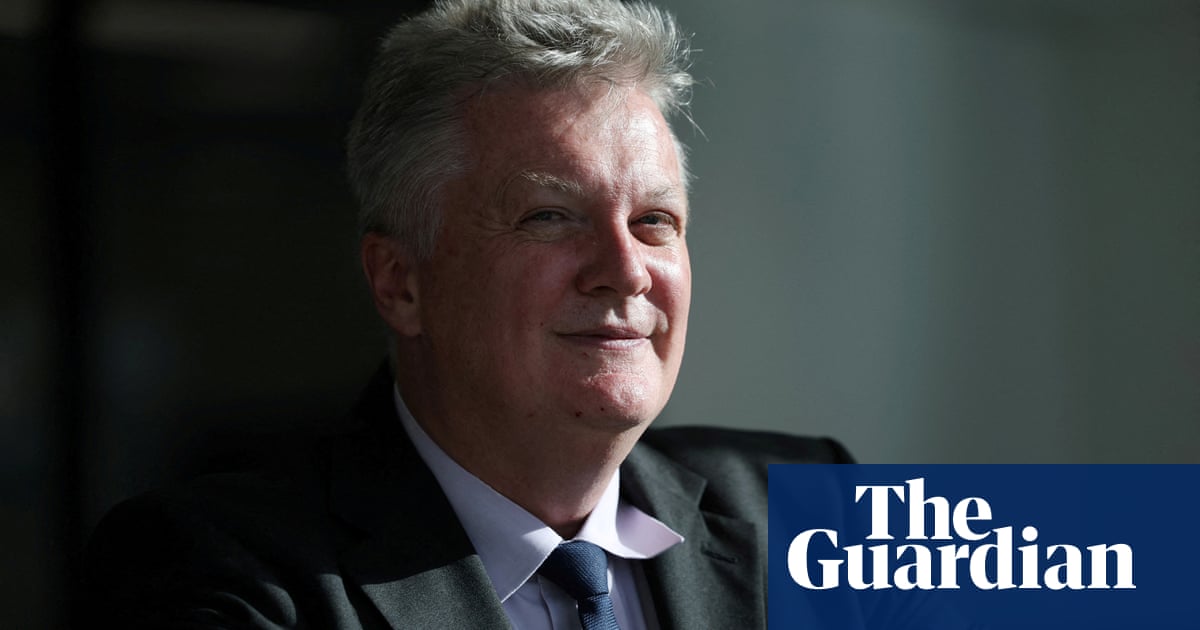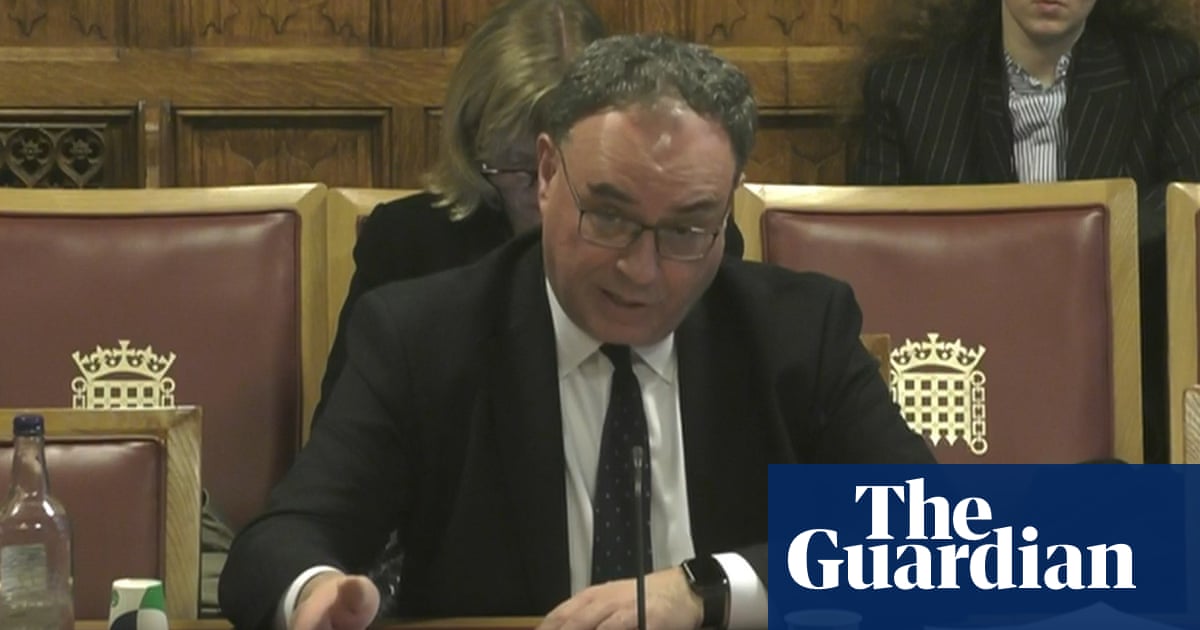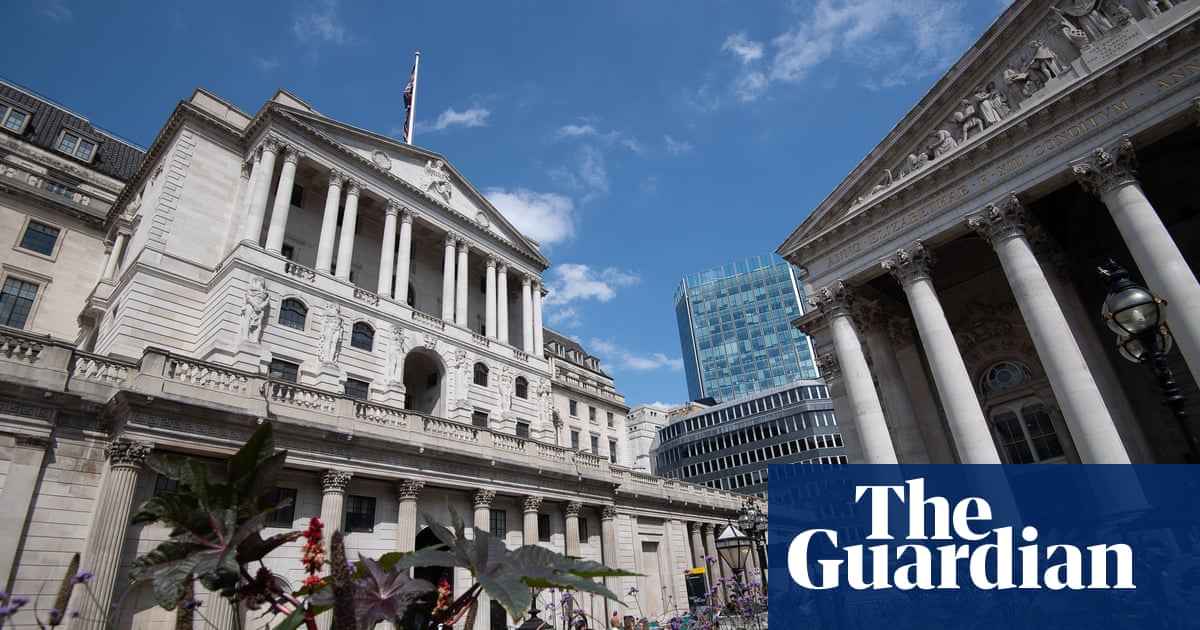
The prospects of a summer cut in UK interest rates have receded after the Bank of England’s chief economist said inflation must be squeezed out of the economy and cautioned against cutting too soon.
After a key survey signalled strong sales across the private sector over the past month and the London stock market rose to a record high, Huw Pill said concerns remained that inflation, which is expected to fall below its 2% target within a few months, could then rebound as the economy strengthens.
Speaking in London, Pill said: “We still have a reasonable way to go before I am convinced that the persistent momentum in underlying inflation has stabilised at rates consistent with achievement of the 2% inflation target on a sustainable basis.”
He added: “[It] is necessary to squeeze the persistent component [of inflation] out of the system.
After his speech financial markets pushed back expectations that the Bank would start cutting interest rates in September. Earlier in the day, investors were betting on a first cut in August from 5.25%.
His comments came as a closely watched survey of business activity by S&P Global showed a strong performance by the services sector and a rise in job hiring, in signs that businesses were heading into the summer in a buoyant mood.
The flash UK purchasing managers’ index (PMI), which covers the services and manufacturing sectors, rose to 54 in April, up from 52.8 in the previous month. A figure above 50 indicates a period of expansion.
Pill’s warning over inflation came soon after the FTSE 100 hit a record high of 8,076 points, driven by hopes that the UK will cut rates sooner than the US, and relief that the Middle East crisis has not escalated further.
But Pill’s warning that rate cuts could be delayed deflated some of that stock market exuberance, sending the London market back down to close at 8,044 points.
Jonathan Haskel, who sits with Pill on the Bank’s nine-strong monetary policy committee, indicated at a separate event in London on Tuesday that the recovery under way in the UK could delay the first interest rate cut by the central bank.
Taking a tough stance that contrasted with several other bank officials, Haskel said more weakness in Britain’s labour market was needed to be confident that inflation would stay at 2%.
“The labour market is central to the inflation aspect,” Haskel said at a seminar at City University of London’s Bayes Business School when asked if he now thought it possible inflation would hold at 2% rather than rise later this year.
He said the number of job vacancies had fallen while unemployment had increased, showing that the labour market was weakening, but it was unclear if it was weakening quickly enough to keep inflation on target.
“Reasonable people might reasonably disagree about the risks,” Haskel said.
Last week the deputy governor, Sir Dave Ramsden, said he thought inflation may stay close to 2%. It is now at 3.2%.
The rise in private sector activity above estimates by City economists is a double-edged sword for the chancellor, Jeremy Hunt, who would like to see interest rates coming down in an election year.
Hunt will be disappointed if only modest growth is considered by the Bank of England to be inflationary and means interest rates fall only modestly this year.
Chris Williamson, the chief business economist at S&P Global Market Intelligence, said the UK recession in the second half of last year was being left behind, though growth remained modest.
“Early PMI survey data for April indicate that the UK economy’s recovery from recession last year continued to gain momentum,” he added.
“Improved growth in the service sector offset a renewed downturn in manufacturing to propel overall business growth to the fastest for nearly a year, indicating that gross domestic product (GDP) is rising at a quarterly rate of 0.4% after a 0.3% gain in the first quarter.”
Official figures next month covering GDP from January to March are expected to confirm the UK is no longer in recession.
Initial estimates showed the economy shrank slightly in the third and fourth quarters of 2023, indicating a shallow technical recession.
S&P surveys of business activity across the eurozone also gave encouraging economic signals of a broad recovery.
Germany returned to growth in April and France came close to ending a period of contraction, while most other economies in the 20-member bloc grew strongly, giving the biggest boost to growth for almost a year.
The HCOB Flash eurozone composite PMI output index was at an 11-month high of 51.4, up from March’s 50.3, a level that indicates faster growth.












